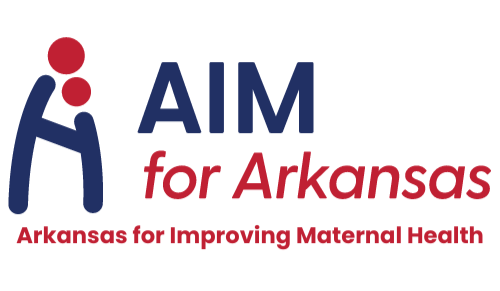
What We Believe
AIM’s Core Principles
-
One of the most significant barriers to maternal healthcare access results from inadequate public health insurance reimbursement rates. Low reimbursement rates make it harder for hospitals to hire and keep doctors and nurses. If Medicaid does not adequately reimburse for care, then health care providers cannot provide services without losing money, forcing the closure of clinics and hospitals. To address the access gap, recent legislation has begun to address the need for rate increases. AIM supports the roll out of newly approved increased reimbursement rates for providers who deliver babies and the ongoing work to increase rates in the prenatal and postpartum periods.
-
Medicaid coverage is limited to 60 days postpartum. But, as any parent can attest, the challenges and needs that come with caring for an infant extend well beyond 60 days.
A key recommendation in the 2022 Arkansas Maternal Mortality Review Committee report was the extension of insurance coverage from 60 days to one year postpartum “to monitor the mother’s physical and mental health, provide support during the transition, and ensure access to treatment.”
To make access to comprehensive postpartum care more affordable, AIM supports the bipartisan effort to increase Medicaid coverage from 60 days to 12 months postpartum. -
The quality of healthcare before, during and after pregnancy can affect long-term health outcomes for both mother and child. Multiple factors contribute to Arkansas's poor maternal health outcomes, including relatively high rates of poverty and large rural areas with limited obstetric care.
All Arkansans should have access to highly skilled and licensed OB/GYNs and perinatal care providers. To ensure mothers and children have the highest quality of care, AIM supports increasing funding for workforce training through medical schools and increasing the number of residency slots to train providers in Arkansas. -
Arkansas’s maternal health and family well-being challenges stem as much from economic barriers as from healthcare gaps. With some of the nation’s lowest female workforce participation, moms face impossible choices, like caring for a newborn or keeping a paycheck, due to scarce childcare and lack of paid leave.
More than half of Arkansas families live in childcare deserts, and infant care can cost over $7,000 a year. Just 27% of workers have access to paid leave, leaving most parents without time to recover or bond without risking their income. These personal struggles have an economic cost. Childcare and paid leave gaps cost Arkansas nearly $800 million annually in lost wages, productivity, and tax revenue, hitting rural and low-income communities hardest.
When moms have economic security and flexibility, families thrive, businesses benefit, and communities grow stronger. Policies like paid leave, child tax credits, and affordable childcare are smart, proven investments in Arkansas’s future.

“Arkansas has a real opportunity to not just catch up, but to lead.
By advancing pro-family policies, we can create a model for what it looks like when a state truly invests in its people.
When we prioritize maternal health and economic security, we invest in stronger families, stronger communities and a stronger state.”
— Ashley Bearden Campbell
